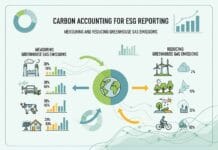Navigating the landscape of federal tax deductions can feel like a complex journey, where rules and limits change with the seasons. For most individuals and businesses, the first step in this journey is understanding the fundamental categories of deductions. This begins with the distinction between above-the-line and below-the-line deductions. Above-the-line deductions are subtractions from your total income that help determine your Adjusted Gross Income (AGI). Examples include contributions to a traditional IRA or certain educator expenses.
The AGI is a critical number, as it can affect your eligibility for various credits and deductions. Below-the-line deductions, on the other hand, come after your AGI has been calculated and include either the standard deduction or itemized deductions. Choosing between the two is a core decision that tax experts near me often help clients with.
They analyze a client’s specific financial data to determine if the sum of their itemized deductions—such as mortgage interest, charitable donations, and state and local taxes (SALT)—exceeds the standard deduction, ultimately choosing the method that minimizes their tax liability.
Beyond the Basics: Navigating Complex and Specialized Deductions
While understanding standard deductions is crucial, the true value of a tax expert lies in their ability to navigate the intricate world of specialized and complex deductions. For small business owners and freelancers, this involves deciphering what constitutes a “necessary and ordinary” business expense. A home office deduction, for example, comes with strict rules that dictate the percentage of your home and related expenses you can claim. Similarly, deductions for vehicle use or professional development have specific documentation requirements that an expert can help you meet.
The complexity extends to investment and retirement planning. CPAs advise on the intricate rules governing contributions to various retirement accounts, like 401(k)s or IRAs, which often have income-based phase-out rules. Professionals like Chicagoland CPAs are well-versed in these nuances, helping clients in densely populated areas with diverse financial profiles. Their expertise is not just about knowing the rules but about applying them to a client’s unique circumstances to uncover every possible deduction and credit.
The Role of an Estate Accountant in High-Stakes Planning
When it comes to high-stakes financial planning, the role of a tax professional extends far beyond the annual return. An estate accountant is a specialized expert who interprets how federal deduction rules impact the transfer of wealth, often across generations. Their work is a critical component of estate planning, focusing on minimizing future tax liabilities for both the individual and their heirs.
| Estate Planning Tool | Description | Estate Accountant’s Role | Impact on Wealth Transfer |
| Annual Gift Tax Exclusion | The amount you can give to an individual tax-free each year. | Advises on optimal use, tracking, and compliance. | Allows for gradual, tax-free wealth transfer, reducing future taxable estate. |
| Lifetime Estate Tax Exemption | The total amount of wealth an individual can transfer during life or at death without federal estate tax. | Guides on strategies to utilize this exemption effectively, including trusts. | Minimizes or eliminates federal estate taxes, preserving more wealth for heirs. |
| Stepped-Up Basis Rule | Inherited assets receive a new cost basis at market value on the date of death. | Explains the benefits, helps identify assets to hold, and minimizes capital gains for heirs. | Drastically reduces capital gains tax liability for beneficiaries when they sell inherited assets. |
| Charitable Deductions | Gifts to qualifying charities can reduce the taxable estate. | Advises on charitable giving strategies (e.g., CRTs, CLTs). | Reduces taxable estate, aligns with philanthropic goals, and potentially provides income tax benefits. |
The Impact of Legislative Changes and Ongoing Education
The tax code is not a static document; it is a living set of regulations that are constantly being refined, amended, or completely overhauled by new legislation. Tax professionals, therefore, must engage in a continuous cycle of learning and adaptation. When a new law, such as a major act passed by Congress, is enacted, it often comes with thousands of pages of new rules and guidelines.
Tax experts don’t just read the headlines; they meticulously analyze the fine print and decipher the complex legal language to understand how these changes will affect their clients. Furthermore, they follow and interpret official guidance issued by the IRS, which can clarify or expand upon the initial legislation through new forms, publications, and notices.
A CPA’s license requires ongoing Continuing Professional Education (CPE), which ensures they are regularly exposed to the latest updates and best practices. This proactive approach to education is what separates a top-tier professional from a basic tax preparer. It allows them to provide forward-looking advice, helping clients adjust their financial strategies in real time to benefit from new deductions or avoid potential pitfalls before they even file their return. If you’re searching for “tax experts near me,” prioritize those with a proven commitment to ongoing education and a proactive approach to tax planning.
Conclusion
In the end, the ever-shifting world of federal deduction rules underscores the indispensable role of a skilled tax professional. They are not merely data processors who punch numbers into a form; they are interpreters of law and strategists who translate complex regulations into tangible financial benefits for their clients. From understanding the foundational differences between deduction types to staying on the cutting edge of legislative change, their work is an ongoing commitment to accuracy and optimization.
Whether you are a small business owner navigating complex expenses, an individual planning for the future, or in need of an estate accountant, the value of a trusted tax expert is immeasurable. This partnership for financial security allows you to focus on your life and goals, confident that an expert is constantly working to minimize your tax burden and ensure your long-term financial health.





